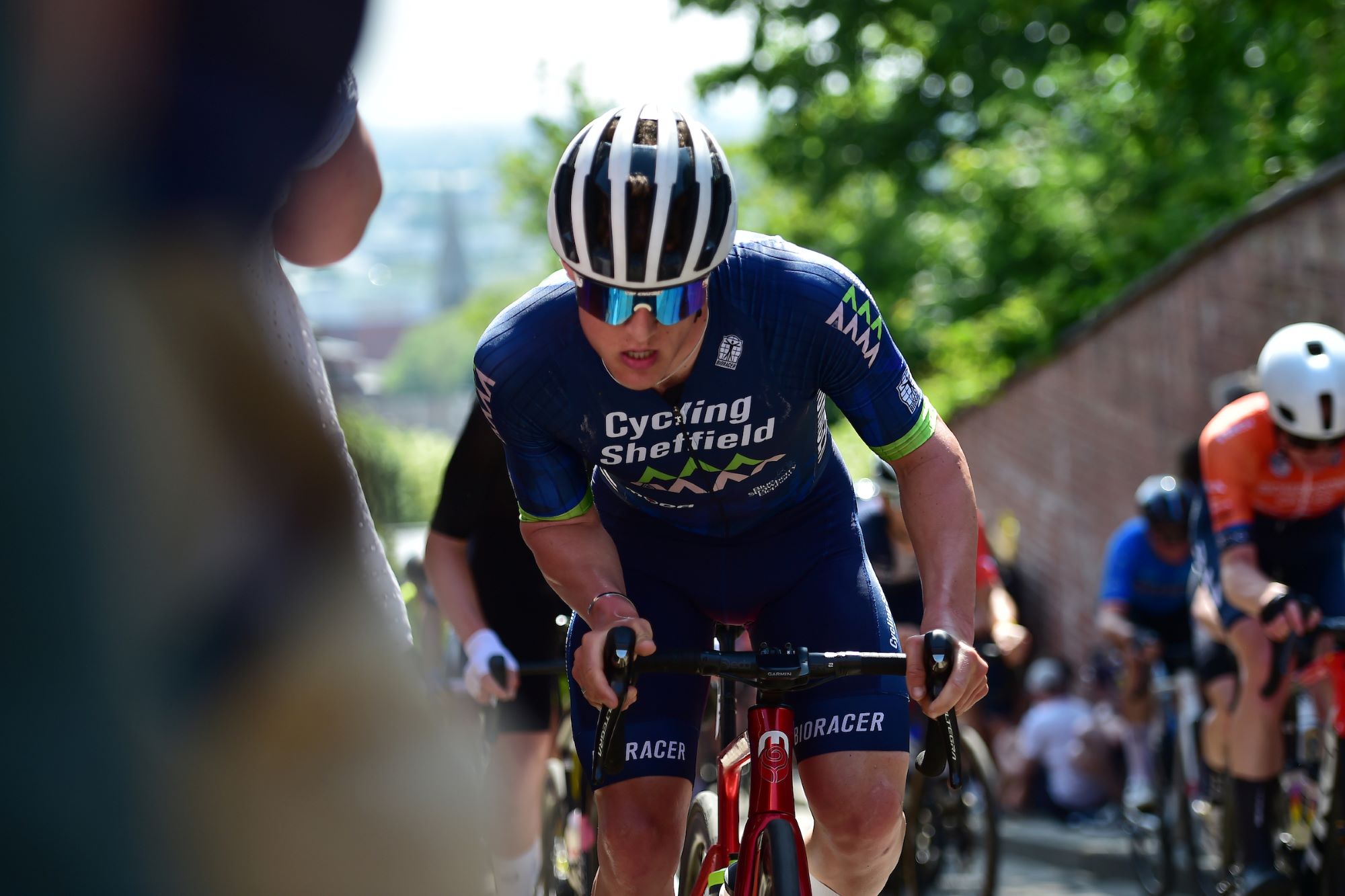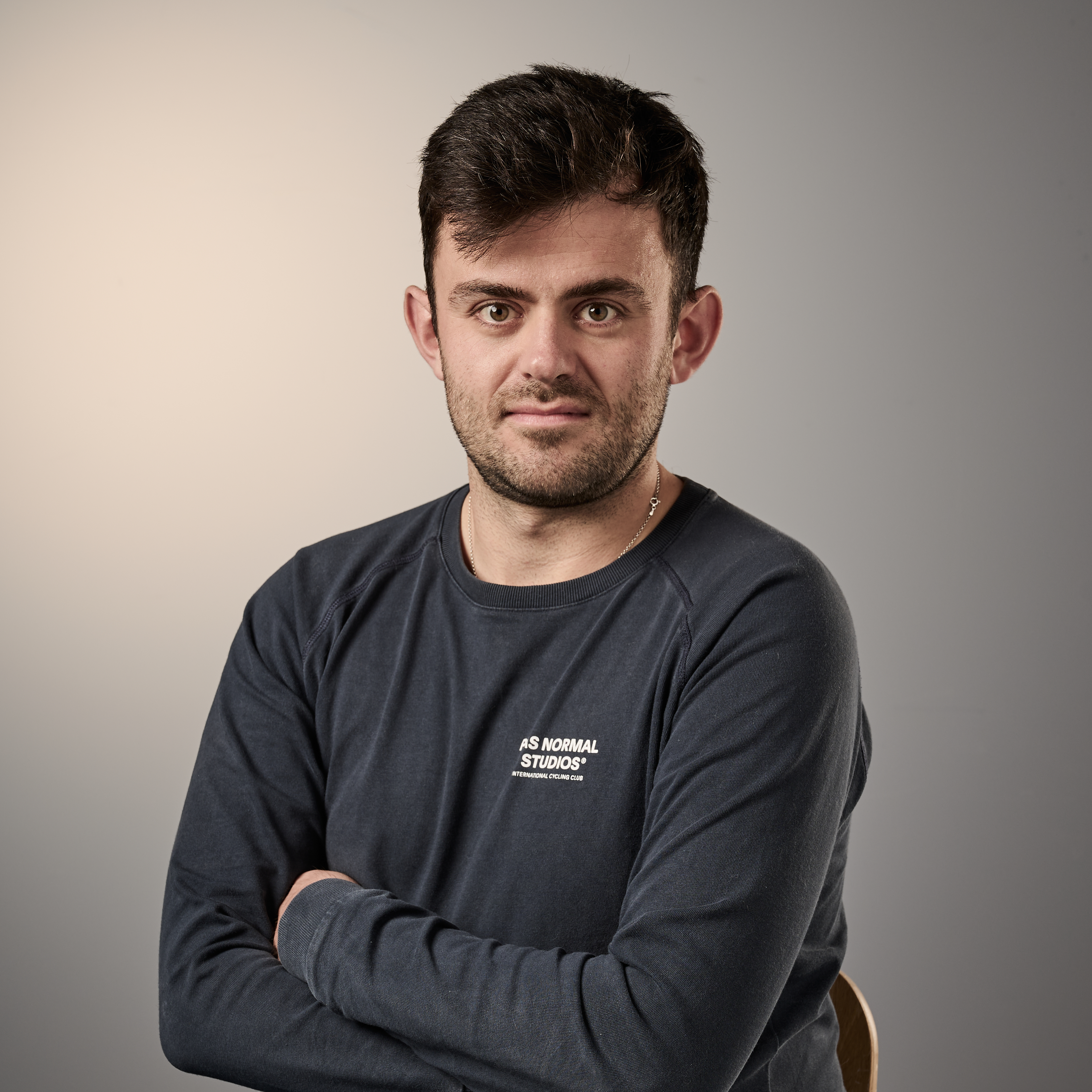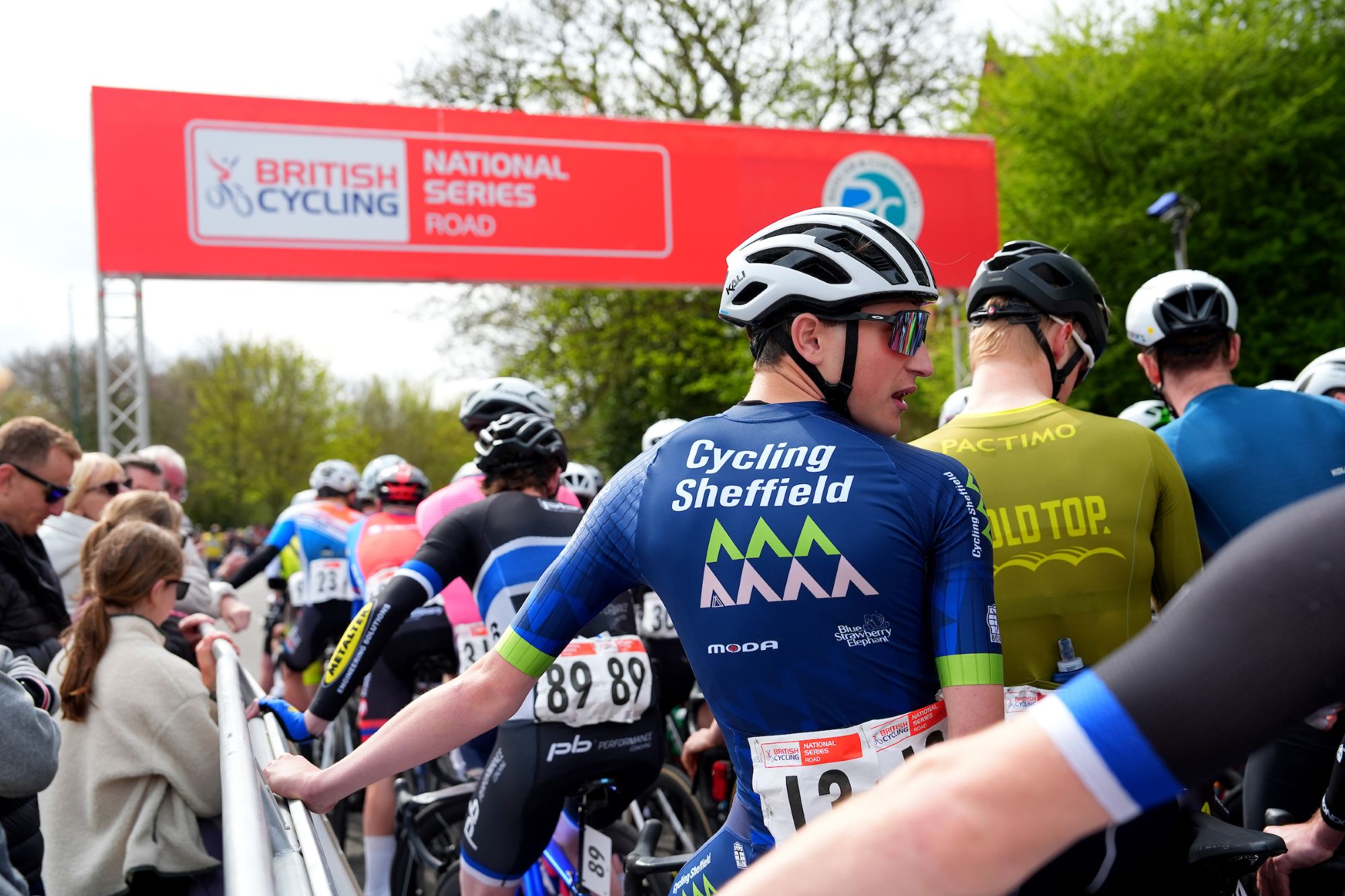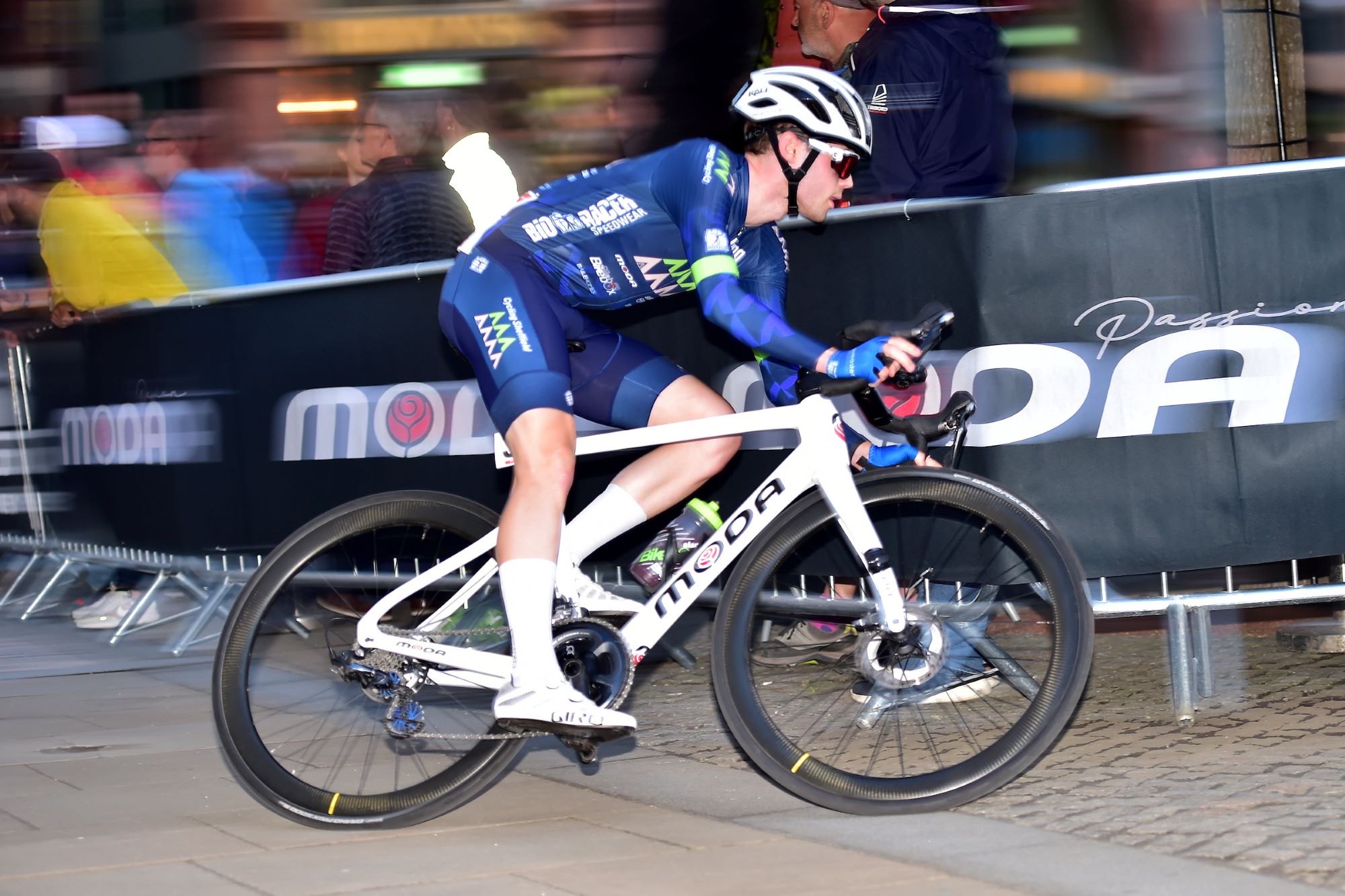'We're trying to build a team that's got a profile not dissimilar to a football club': The British team boss trying to do something different
Dave Coulson, founder and manager of Cycling Sheffield, tells Cycling Weekly about his time in the sport and what led him to form the Steel City's only elite cycling team


Dave Coulson is a former semi-professional cyclist and the manager and founder of Cycling Sheffield, an elite development team based in South Yorkshire. The team race at regional, national and international level, travelling to races across the UK and Europe. Connor Swift of Ineos Grenadiers and the current British national gravel champion is a graduate of Coulson's project.
This is part of our Q&A series.
CW: For those that don’t know a lot about you, what got you into cycling at the start?
I'd always liked bikes. I rode BMX when I was very young, and then just started riding my dad's road bike in my mid teens, a long, long time ago, and then started racing. I probably rode my first race, that being a BMX race, in the early 1980s so I've been on bikes and involved with bikes for a long time.
CW: At what point did you realise that you wanted to try and make the sport a bit more than just a hobby?
I think I was very much one of those riders of my era that wasn't going to make it big time, but I always liked being a cyclist so me and other riders at the time did what we called bike rider jobs part time, and I did all sortsof stuff in the winter, worked on building sites and things. So I just got by and ended up staying a bike rider for a fairly long time.
CW: Did you ever go off into Europe for racing and training?
Get The Leadout Newsletter
The latest race content, interviews, features, reviews and expert buying guides, direct to your inbox!
I spent some time in Europe, a few years in France, and then quite a bit of time in Italy on and off in various places. I finished racing at the end of 2010 and it was very different to how it is now. Lots of far more talented riders than me went to Europe and didn't really make it but might do now. The sports changed so much, lots of things are better now, in particular for British and English speaking riders in Europe.
CW: Who were your cycling influences? Who inspired you?
I think the first rider I really liked when I was very young was Lucho Herrera, a Colombian who won the king of the mountains in the Tour de France. And then probably Marco Pantani, I quite liked Pantani, it's quite a sad story, which even at my age and with a lifetime spent in the sport it is still quite a touching story really, I've still got a spot for him. But when you get to my age, you don't really have heroes. They're just blokes who ride bikes fast.

CW: Can you remember your first road bike? What was it like?
It was sort of nicked from my dad, and it was a Reynolds 531, built by JF Wilson. It's a very, very famous Sheffield cycling family, and lots of people in Yorkshire, particularly South Yorkshire and Sheffield, will know that name. That was my first bike, a JF Wilson, the shop still kind of exists on city road in Sheffield, it's a tiny little place.
CW: What was the first race that you remember watching?
Probably something in Sheffield city centre, back in the mid or early 80s, as a very young kid. And then the Milk Race, the Milk Race often came to Sheffield. I also remember watching Malcolm Elliot and a few other local big hitters at quite a prestigious local race a long, long time ago called Stannington road race on the other side of the city from me.
CW: What led you to set up Cycling Sheffield? What did the team look like at the start?
I'd been running this team for three years. We actually lost the title sponsor at the end of the third year and theteam was kind of set to fold. But then I started talking to my wife about maybe having a go at this idea that I'd had rattling around in my head about having a team all about Sheffield and supported just by Sheffield sponsors.
It was necessity really that got this going. It was a case of run with this idea, see if I can make it happen, or we shut up shop. I spent a week on the phone talking to the sponsors that we did still have, and they all gave me lots of support and encouragement that kind of gave me the confidence to run with it.
Back then I had the same kind of ambitions that I still have, I just try to run a good team, look after riders, work hard for the sponsors, do your best to help the riders develop and move on and then just try and enjoy it along the way. It's a tough sport. It's got to be enjoyable.
"We're trying to build a bike team that the city and the area can care about"
Dave Coulson

CW: How would you describe that Sheffield identity that the team has for people that might not know a lot about the city?
I often say we're trying to build a bike team that's got a profile not dissimilar to a football club that the city and the area can care about.
I had a meeting at the beginning of this week with a potential new sponsor. They knew next to nothing about cycling, but what they really like is the whole Sheffield element and shouting about where we live and where they're doing business.
It's not a complicated idea, it's how a lot of teams in Europe of our kind of size operate. I just think it's the best way of trying to make a team sustainable and viable.
The whole Sheffield idea, it just gets people's attention and captures their imagination a bit easier. So it's still by no means easy, but it does make a difference. We're still not where I'd like to be, but that's down to me to make that happen.
CW: In your time in team management what would you say are the biggest lessons that you’ve learned so far?
Probably to not push my push myself too hard, and to just know that I can only do what I can do. When teams don't have as much money as they like, if they're any good, they rely on a lot of work by other people.
Money makes everything easier, and running bike teams is no exception. So sometimes it's a case of I've not got enough money to make this easier or make that thing doable, so I just have to accept that, knowing that I'm not letting anybody down. And I'd like to think there's not a team that would be doing more for its riders.
CW: On the flipside to that what would you say are your proudest moments from running the team?
I don't know if there's just one. This year has been a big year as we've been very successful, and it feels like in the last couple of years, we've really got established as a good development team and being recognised as a good stepping stone. It's great that we've won a lot of races this year and had loads of results, but that's because the process has worked. I'm always quick to point out that the riders turn the pedals, I just do what I can to provide good opportunity and if they can learn anything from me and being on this team then that's great.
I think the highlight is just maybe being where we are now really and very established. There's a lot to be said for that. There's a lot of focus on there not being any big UCI teams anymore, but there's a lot to be said for the people keeping the small teams running and doing what they can. We're only an eight man team and four of those riders we've helped move to teams in France for next year. So I see that as huge success,
Obviously that means we start next year with a load of new riders but that's just the nature of it. All teams, apart from World Tour, you know, have an obligation to play that role of developing riders.
CW: Finally what’s next for the team in 2025?
I think just more of the same, flying the flag for for Sheffield and our sponsors, and what the team's about, and helping the lads develop and come on. We'll be doing as much racing as we we can in Europe, along with the National series races and some of the circuit races and the under 23 series.
In spite of the calendar not being as good as any of us would like, our race program will be okay. With only eight riders to provide opportunity for, I find it's easy for me to give them enough racing.
Particularly with the age they all are I want them to do a full season and be regularly learning and getting results for as much of that year as possible.

Thank you for reading 20 articles this month* Join now for unlimited access
Enjoy your first month for just £1 / $1 / €1
*Read 5 free articles per month without a subscription

Join now for unlimited access
Try first month for just £1 / $1 / €1

Tom has been writing for Cycling Weekly since 2022 and his news stories, rider interviews and features appear both online and in the magazine.
Since joining the team, he has reported from some of professional cycling's biggest races and events including the Tour de France and the World Championships in Glasgow. He has also covered major races elsewhere across the world. As well as on the ground reporting, Tom writes race reports from the men's and women's WorldTour and focuses on coverage of UK domestic cycling.
You must confirm your public display name before commenting
Please logout and then login again, you will then be prompted to enter your display name.
-
 FDJ-Suez, SD Worx-Protime, Lidl-Trek confirmed for Tour of Britain Women as strong list of teams announced
FDJ-Suez, SD Worx-Protime, Lidl-Trek confirmed for Tour of Britain Women as strong list of teams announced18 teams set to take part in four-day WorldTour stage race
By Tom Thewlis
-
 Cyclists could face life sentences for killing pedestrians if new law passed in England and Wales
Cyclists could face life sentences for killing pedestrians if new law passed in England and WalesReckless cycling currently carries a maximum two-year jail term
By Tom Thewlis